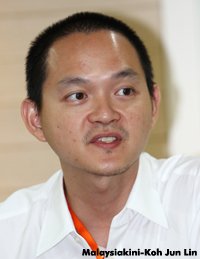By Ong Kian Ming | 7:50AM Mar 26, 2014
Malaysiakini
ANALYSIS To the casual political observer, two facts from the recent Kajang by-election would have stood out.
Firstly, the turnout decreased from 88 percent in GE13 to 72 percent. Secondly, the majority of victory decreased from 6,824 in GE13 to 5,379 – a drop of 1,445 votes.
On the surface, these results may seem like a negative reflection on Pakatan Rakyat’s and specifically PKR’s campaign as part of the ‘Kajang Move’. But a more careful analysis of the results reveals important findings that are positive for Pakatan, moving forward.
Pakatan increased its popular vote from 56.8 percent to 59.7 percent, a 2.9 percent increase. While this increase may not seem significant, one has to take into account that the lower turnout most likely decreased Pakatan’s popular vote.
Most of those who did not vote for a variety of reasons – did not return from outstation, it was the start of the school holidays, and thought that the outcome was already decided – would have been Pakatan voters, especially the younger voters whose turnout decreased more than the older voters (more on this later).
Secondly, Pakatan won in 14 out of 16 polling stations (not including postal and early votes) in the by-election compared with 12 out of 16 polling stations in GE13.
Continue reading “Kajang polls reflect positively on Pakatan”

 “When we investigated the latest electoral roll of the fourth quarter of 2012, we found that there were 7,029 voters with old identity card numbers belonging to the red IC range and 446 voters with old IC numbers belonging to the green IC range.
“When we investigated the latest electoral roll of the fourth quarter of 2012, we found that there were 7,029 voters with old identity card numbers belonging to the red IC range and 446 voters with old IC numbers belonging to the green IC range.